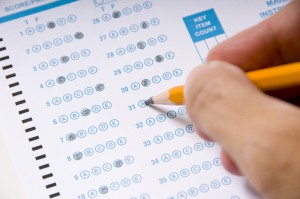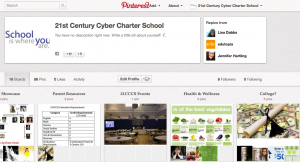8th grade 21CCCS student Anthony Scarpone Lambert won our YouTube/Essay Contest this year! Take a look at his winning submission here!

8th grade 21CCCS student Anthony Scarpone Lambert won our YouTube/Essay Contest this year! Take a look at his winning submission here!
Anna Siftar, a senior at 21CCCS and member of National Honor Society, organized and lead a group of youth and adults in a “Maze Garden Clean Up Day” as a part of Bethlehem’s First Friday Festivities. The group and community enjoyed DJ Arm 18 and DJ Marcelino’s spinning while uprooting out of control thistles, taming overgrown grass and clearing weed-filled brick paths. At the end of the day, the group’s hard work was rewarded with a beautiful garden for all the community to enjoy. Mr. Miller, Mr. Petters and all the staff at 21CCCS would like to thank and congratulate Anna and her workers for their efforts in making their community a better place. Check out some photos of the event below!
This year, the state of Pennsylvania (as well as several others) offered an online version of their standardized tests for students. For us, this means the PSSAs and Keystone exams could be taken on a computer. 21CCCS was one of the first schools in PA to opt-in for online testing. While reports across the country have shared some issues with offering standardized state tests online, we encountered minimal issues.
For schools that have been swamped with paper-based state standardized exams for years, this was a huge change with the potential for a variety of positive effects. For the students, it means traveling to a designated location with his/her computer in tote, and logging into a web site from that personal computers. This removes the immediate anxiety of suddenly switching from the computer they’ve become comfortable using to something entirely new.
How does this contribute to comfort? The writing test for the PSSAs requires students to type their responses, instead of clicking through multiple-choice answers. It may sound strange, but something as simple as feeling comfortable with the spacing of keys on your keyboard will contribute to lowered anxiety and more comfortability during testing. When students can type on a keyboard they normally use, they work efficiently and without the worry of having to make an adjustment.
 The tests are timed, answers are recorded, and students can easily scroll back through questions and return to those they weren’t sure about. This gives students the opportunity to rethink their responses and answer to the best of their ability, while eliminating the common human error seen when students have to fill in tiny bubbles on answer sheets. Working back and forth between the test booklet and answer booklet is not a problem when everything a student needs appears on a screen in separate windows for each test question. Additionally, as soon as students log in and submit their tests, attendance and participation in the assessment is automatically tracked and recorded.
The tests are timed, answers are recorded, and students can easily scroll back through questions and return to those they weren’t sure about. This gives students the opportunity to rethink their responses and answer to the best of their ability, while eliminating the common human error seen when students have to fill in tiny bubbles on answer sheets. Working back and forth between the test booklet and answer booklet is not a problem when everything a student needs appears on a screen in separate windows for each test question. Additionally, as soon as students log in and submit their tests, attendance and participation in the assessment is automatically tracked and recorded.
For proctors and administrators working to organize and distribute these exams, online testing is clean, organized, and easy to distribute. There are no test or answer booklets. There is no counting, collecting, checking, and double-checking that all materials are received from and returned to the state. The fear of losing something along the way has been eliminated.
So, how did things pan out? Now that the PSSA testing is behind us, we can begin to reflect on our experience. We’ve received nothing but positive feedback from parents and students. We were fortunate to learn that Data Recognition Core (DRC) would be the company managing all PSSA and Keystone online testing. This is a company we have worked with before, to issue students preparation testing and materials called the Classroom Diagnostic Tool (CDT). We were familiar with their services and best practices. They were incredibly responsive, helpful, and resourceful in answering questions and helping us to feel confident to issue the test to our students. They were willing and able to troubleshoot, and did so in one instance when a student’s answer screen froze.
In some areas where we held testing, if the site’s network quality was not strong, we had an issue. But, that was more so a problem because we needed to rely on the connectivity of the sites where we offered the test. With a variety of testing sites, it was no easy task to ensure that all networks would be ideal.
We hope to continue to offer state assessments online. It has proven to be a seamless process that helps the students to feel confident and more at ease. School Guidance Counselor, Mrs. Lyle reports, “This is a much cleaner process now. Moving forward, I will pick it every time, hands-down. We’re an online school, and this is how the kids are comfortable. It just makes sense.”
Read below to learn more about some of our spectacular alumni! Rachel has a lot of great things to say about college and making a life transition.
Rachel:
 I’m currently a freshman at MIT in Cambridge, MA. Most of my first year here will be spent taking general intro classes, but I plan to get a biology degree and become a medical researcher. I love late-night sociopolitical discussions, sweet potatoes, and the BBC’s Sherlock. I’ve also been dancing (ballet and ballroom, mostly) since I was about 7, and I’ve continued that at MIT as well.
I’m currently a freshman at MIT in Cambridge, MA. Most of my first year here will be spent taking general intro classes, but I plan to get a biology degree and become a medical researcher. I love late-night sociopolitical discussions, sweet potatoes, and the BBC’s Sherlock. I’ve also been dancing (ballet and ballroom, mostly) since I was about 7, and I’ve continued that at MIT as well.
There are a lot of things I could say pertaining to the 21cccs—college transition, but I’m going to focus on time management. (Typical, I know, sorry.) Seriously, though, it’s been one of the most useful skills I’ve brought with me and I’ve noticed that it’s a challenge for some of my fellow freshmen. I was cyber-schooled throughout middle and high school, and I was a 21cccs student from 10th-12th grades. Online schooling takes a lot of self-motivation, especially in later grades. There is no explicit schedule, and no teacher at the front of the room. It’s up to you to finish that essay or take that math test. Teachers are always available for help, but you have to reach out to them; there’s no way for them to know that you’re struggling if you don’t say anything. It’s unbelievably easy to procrastinate, especially when the Internet is a click away. Most of these challenges are unique to cyber-schooling, and I think it’s really important to acknowledge that online education doesn’t work for everyone. It didn’t work for my siblings. It was perfect for me, however, and by the time I graduated I had gotten really good at managing my time, taking control of my own education, and asking for help when I needed it.
When I got to MIT, these skills were just as important! The workload here dwarfs anything I ever experienced in high school, but I’ve been able to stay on top of everything. My first week here, I knew that I needed to start my homework early, make sure I knew about deadlines and exam schedules, and ask other people for help when I didn’t understand a chemistry concept or a physics problem. I’m definitely not a model student, but I had a much smoother transition than some of my friends. I definitely attribute this to cyber-schooling and the fact that I learned how to structure my own schedule in middle school (instead of three weeks into my freshman year of college).
I’ve already exceeded my word limit by over 100 words, so I’ll stop there. If there’s anyone out there who’s applying to colleges or thinking about applying or wondering more about the relationship between cyber-schooling and college, you should email me! Seriously!
We are so proud of Rachel’s successes so far. Often times, that hardest part about transitioning to college is learning how to adapt to the schedule change, and find a routine that works well for you. Thanks for sharing, Rachel! And best of luck!
High school junior here at 21CCCS, Lexi Burkholder, is a speed skater. She has been training and practicing for years. As a result, she has a pretty atypical lifestyle. When I asked her to describe a few things for me about her life, she was happy to create a blog post for us. Read below to learn more about the complex, dedicated life of Lexi!

Hi! My name is Lexi Burkholder and I’m a short track speed skater. I also attend 21st Century Cyber Charter School. I’ve been skating since I was 10 and went to public school until 8th grade, which was when I won my second age group national championship. At that point, my parents finally relented and allowed me to enroll in cyber school so I could have more time to train.
I trained on my home ice rink in Pittsburgh during my freshman year of high school, and qualified for my first junior world team. I had previously only competed at domestic meets, mainly in the Midwest and Northeast. These areas are hotbeds for speed skating. So I raced in Courmayeur, Italy at the Junior World Championships and learned the hard way just how different (and difficult) international racing was.
I continued training in Pittsburgh through October of my sophomore year. Later that year, I decided to stop ignoring the pain that had been building for months in my left knee. After various doctor visits, MRIs, and lots of physical therapy, it was determined that I had partially torn my quadriceps tendon and I needed surgery to “patch things up.” Believe me, going from training five hours per day to nil is pretty rough, and I think I jumped into things too quickly afterward! I was back on the ice that December, and raced a qualifier in late January for Junior Worlds (which was in Australia that year, and had been on my bucket list).
I didn’t make it. Around that same time, I lost my coach and needed to find somewhere else to train and rehabilitate myself. Washington DC was close and had a great team, so I trained there for the rest of that season and throughout the summer.
I liked DC, but couldn’t afford the training and living costs. At the beginning of my junior year (this year), I moved to Milwaukee, Wisconsin to try out an experimental program they were starting out. I could hardly do off-ice training at this point, since I was still recovering from my knee surgery. I really had to figure out how to listen to my body and learn when to push and when to stop. I also had to learn to be diligent enough to stretch more and to strengthen my smaller muscles.
I raced two senior qualifiers this year, finishing around 11th place in both. I qualified for the Junior World team in late January. Then, my schedule really started to pick up. I trained in Salt Lake City for all of February, then left for Warsaw, Poland from there to compete at the Junior World Championships. I placed 35th, which I’m really not proud of at all, but I was super thankful for all the hard lessons I learned to even get there. I know that those lessons will serve me in the future. I finished this season up with the American Cup Finals in Omaha, Nebraska, where after some remarkably dumb racing decisions, I still came in 5th.
Since Omaha, I’ve been enjoying my off-season in Pittsburgh and planning my move to Salt Lake City. I’ll be driving cross-country mid-April and will be there probably until next March. I’m excited to train this summer since my knees are finally starting to cooperate. I’m also excited for next season because it’s Olympic season and people actually take some interest in speed skating!
Lexi is currently an eleventh grade student here at 21CCCS. She enjoys running, reading, and spending time with friends. She hopes to pursue psychology as a major after graduating from 21CCCS.
One of our students, Badera, started to get apprehensive about the thought of beginning college. Since fretting can only do so much for a person, Badera got ACTIVE! She decided to build a blogsite to help other people who might share his thoughts and feelings, with college days looming. Read below to learn what she had to say about developing her new site. Also, click on the link below to check out this great new resource!
Badera writes:
“I have many mixed feelings about college. I am nervous, excited, and utterly terrified to leave home and be out on my own. Not only that, the SAT’s are coming up and I want to do really well. That is why I created this blog. I don’t really have anyone to talk to about college and the application process. I made this blog so that kids like me can talk and express our fears about college. We can discuss what colleges we want to attend, SATs/ACTs, college essays, and everything that has to do with post-secondary education.”
Check out Badera’s new site at: omgcollege.tumblr.com
 21CCCS is proud to announce the launching of our very own Pinterest page. Thanks to the hard work of Ms. Vice and Ms. Kennelly, there is now a space where parents and students can browse articles, events, educational resources, and more. Our teachers have developed separate “Pinboards” for each content area within our school, along with a few other areas of interest. Some of the boards include: Humanities, Student Showcase, Parent Resources, Math Department, Science Department, and Exceptional Learners. But, don’t take our word for it! Check out our page for yourself by CLICKING HERE. Enjoy!
21CCCS is proud to announce the launching of our very own Pinterest page. Thanks to the hard work of Ms. Vice and Ms. Kennelly, there is now a space where parents and students can browse articles, events, educational resources, and more. Our teachers have developed separate “Pinboards” for each content area within our school, along with a few other areas of interest. Some of the boards include: Humanities, Student Showcase, Parent Resources, Math Department, Science Department, and Exceptional Learners. But, don’t take our word for it! Check out our page for yourself by CLICKING HERE. Enjoy!
For spring break this year, I decided to visit my alma mater. Since graduation was more than a few years ago, I felt ridiculously old walking around the old buildings where I once studied as a twenty-something and younger. While it was really fun to reminisce about the good old days, I got a chance to see something else special that I wanted to share with our seniors who are preparing to enter a college or university this coming fall. There was something more to college that I couldn’t quite put my finger on until now.
While on campus, I decided to attend a student-run event called “Homebrew.” It features student musicians, who play a set of about 45 minutes or so. I would venture to guess that around 150-175 students gathered that night (last Thursday) around the modest stage space to cheer on his/her classmates. The atmosphere was incredible. The crowd shifted throughout the night, welcoming newcomers, waving out folks with other places to be. Students brought homemade signs on neon tag paper with catchy phrases and accolades for their friends. One poster read, “I mean, I guess you sound ok #Sarcasm!” Screams and yelps cheered performers on as they hit beautiful high notes, masterfully strung guitar chords, or forgot lyrics. Encouragement was offered, regardless of the performance itself. Before a new performer got onto the stage, a circle of friends waited alongside the stage, offering hugs, smiles, waves, and joyful hoots. Everyone simply seemed happy to be there.
Between songs, performers also shared news about upcoming events across campus. “Don’t miss the baseball game tomorrow!” “New show at the Art Museum!” It was such a great out pour of community support. But somehow, it went beyond that. The encouragement was mind blowing. The acceptance, enthusiasm, and overall joyfulness permeating the room made me feel young again. And that’s when I realized that THIS is what I loved so much about college. The willingness, the acceptance, and the freedom from discouragement.
The students performing were welcomed by a crowd that was just dying to hear them. And I wondered what creates that sense of community. When students live together in a dorm, they have an opportunity to spend more time getting to know one another. They live and breathe together, often sharing many meals, and, in the case of a musician, hearing their friends practice for hours on end. As students in the same community, they become intertwined in one anothers’ lives. And wanting to support each other becomes a more natural happening.
This got me to thinking. Do we really get to know one another nearly as well as we do when we’re in college? Because when we stop experiencing that kind of closeness, the unconditional support and encouragement becomes much more difficult to come by.
Now, I’m not saying we all need to live on a socialist commune. That is not the idea at all. I love my home. I love having graduated and become a “grown-up.” But, perhaps there is something we can all take away from the community of a college campus. In the super fast, high-speed lifestyles that often follow the college years, how can we find a way to harness that incredible feeling of community support? One way to do that is to start the pattern early. Like, say, while in high school.
One of the things I hear all the time about our cyber school is that students and teachers feel very close to one another. There is something about your cyber presence that is very different from what is created in a brick-and-mortar environment. We get to know one another. We learn about each others’ passions and dreams. Teachers don’t just learn “what you want to be when you grow up.” They find students’ strengths and help hone them by modifying assignments that speak to students. Then, students utilize different forms of media to explore and show their passions and creative abilities to others. The social media explosion, especially, has made sharing information easy, fast, and much more common.
So, what is the moral of the story? What am I getting at here? I encourage students to take what they’ve learned here at 21CCCS, and let it carry with them into college and anything else they pursue thereafter. Support, engagement, and enthusiasm for your community can go a long way. It may make one brave performer a little more at ease for his first night on the stage. And it will definitely unite you with a larger body of people and make you feel at home.
We asked our teachers and staff what their plans are for the upcoming spring break. It seems many of the 21CCCS family is traveling. Can you guess who responded to us?
“I plan to visit my son in Washington, try to play some tennis if the weather is nice, do some home improvement projects and try to relax…”
“I plan to visit my mother in Taiwan.”
“I am in the process of moving! I’ll be packing my bags! Plus, I get to talk about my super cool job at my daughter’s school for Women’s History Month.”
“I’m visiting Williamsburg, VA to see my Alma mater!”
“I have no idea!”
“I’m going to Atlanta!”
“I’m having a big Egg Hunt at my house!”
“I’m going to Delaware to see the sites! I also hope to get to the zoo, and to see my family.”
“I hope to do some home repairs and grade.”
“I won a free cruise to the Bahamas! So I’ll be there!”
“I’ll be in North Carolina.”
“I’m going to ‘Story Time’ with my son, and running with him in my jogger! I can’t wait.”
“I’m going to visit my sister in Dewey Beach.”
“I’ll be in Rehobeth Beach.”
“I’ll be doing some work on my house and taking care of my dogs. They can be a handful!”
“I’m heading to Rhode Island to spend time with family.”
“I am taking my family to Myrtle Beach, even though the weather does not look too great.”
“I will have Mommy-daughter day all week since my husband works. We are going to the park, the nature center, and the ‘Please Touch Museum.'”
“I plan to spend lots of time cuddling with my daughter and teaching her how to sleep in the big girl crib.”
“I will be painting furniture!”
“My family is renting a log cabin in the Smokey Mountains.”
“I have a horse show planned. If the weather is good I will get some trail riding in, too. I am also taking my daughter and friends to the Mutter museum in Philadelphia. We have a lot to do!”
“We’ll be doing a lot of hiking, probably at Point Reyes.”
“I’m traveling to see my family in Georgia!”
“I will just relax.”

Last Thursday, March 14, Pennsylvania’s Education Committee met in a caucus room with seating for 200 in Harrisburg. The PA House opened their doors to the public in an attempt to gain insight on recent bill proposals, House Bill 618 and House Bill 759.While the caucus room only holds about 200 people, the rotunda within the capitol was also open to the public, so they could watch and listen in on the room’s happenings. Nearly 100 additional people filled the rotunda area, and their shouts of approval could be heard throughout the capitol, as they responded to testimony and discussion throughout the day.
Why were there so many constituents in attendance?
And why was 21st Century represented there as well?
These bills offer new solutions to the funding structure currently in use for charter and cyber charter schools in the state. At present, charter and cyber charter schools receive monies from school districts when a student transfers from his home school district to another public institution. Although there are deduction allowances in place, many say the formula is broken. School districts contest too much money is already given to charter and cyber schools. Because these schools operate differently from traditional bricks-and-mortar schools, what it takes to fund them properly is simply under speculation.
The caucus room was heated Thursday. Advocates and opposers of the bill alike have a lot to say. School district officials, such as the superintendents and office managers present, believe that direct pay from the state to charter and cyber schools will alleviate current tensions. Others believe it simply costs less to educate students through charter and cyber schools. Those who believe education costs are varied cite cyber schools as not having needs for student transportation, facilities maintenance, library services, school health, and more. What was somehow misrepresented was the fact that cyber schools, instead, have various technological needs, state testing expenses, and more. Charter and cyber schools have very different needs and, therefore, very different expenses than traditional bricks-and-mortar schools.
Following the testimony of school superintendents, student and parent organizations, business managers, and the like, Education Committee members questioned testifiers in an effort to give voice to the public and gain clarity on the plausible effects of approving pending bills 618 and 759. It is the hope of all in attendance that the cries of the public will be heard, understood, and utilized, as lawmakers work to build the best funding structure possible. The greatest hope of all is that the needs and interests of the students will remain at the forefront of the issue.
Keep informed! Follow us on Twitter @21cyberschool, or check out our new School Choice Movement page on Facebook!